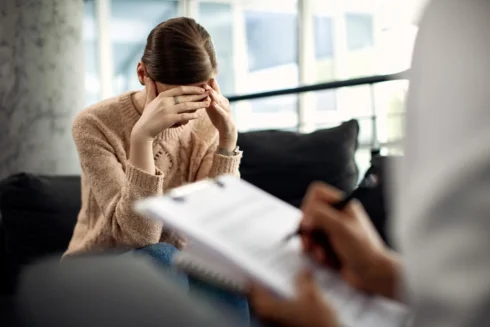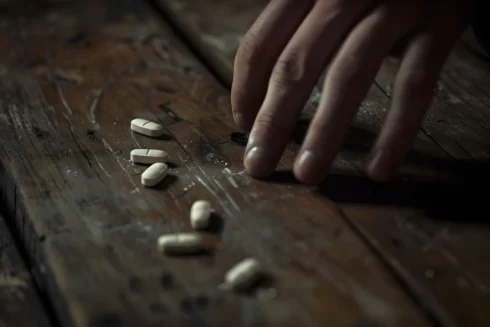Bipolar Disorder Systems and Treatment
Bipolar Disorder Systems and Treatment
What is Bipolar Disorder?
Bipolar disorder, also known as manic-depressive disorder, is a mental health condition characterized by significant mood swings. Individuals with bipolar disorder experience oscillations between periods of heightened excitement and elevated mood, known as manic or hypomanic episodes, and episodes of profound sadness and hopelessness, known as depressive episodes.
During manic episodes, individuals may engage in impulsive and risky behaviors, experience a decreased need for sleep, engage in excessive talking, and exhibit an inflated sense of self-importance. Conversely, during depressive episodes, individuals contend with persistent low moods, a loss of interest in previously enjoyable activities, changes in sleep and appetite patterns, difficulty concentrating, and feelings of worthlessness or guilt.
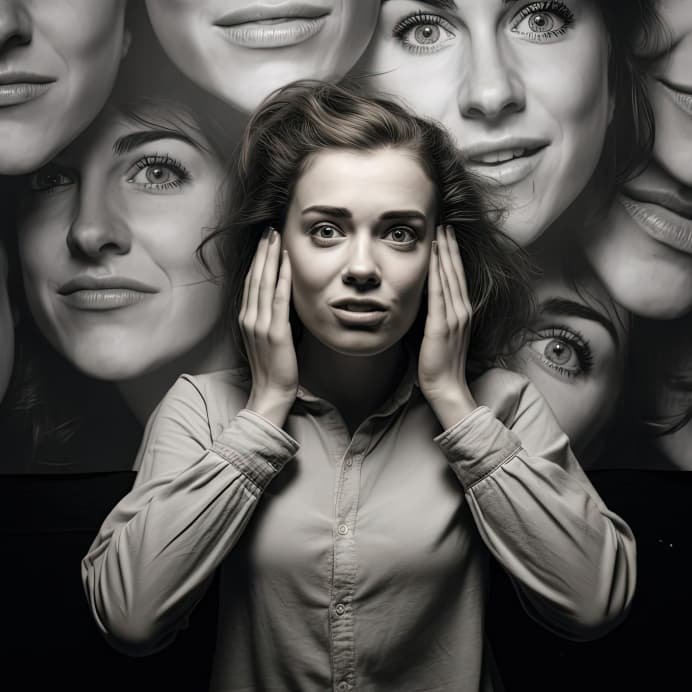

Causes of Bipolar Disorder
Several factors contribute to the development of bipolar disorder, including:
- Genetic Predisposition: A family history of bipolar disorder increases the likelihood of developing the condition.
- Brain Structure and Functioning: Abnormalities in brain structure or function can influence mood regulation.
- Neurochemical Imbalances: Imbalances in neurotransmitters, which are chemicals in the brain responsible for mood regulation, can contribute to bipolar disorder.
- Stress and Trauma: Significant life changes, stress, or traumatic events can trigger the onset of bipolar disorder or exacerbate existing symptoms.
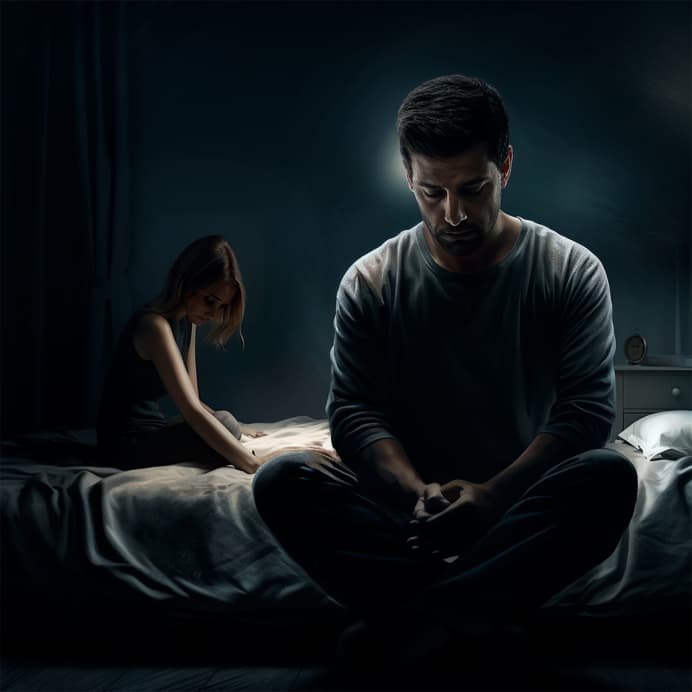
Symptoms of Bipolar Disorder
Recognizing the symptoms of bipolar disorder is crucial for early intervention and effective management. The disorder is characterized by intense mood shifts between manic and depressive episodes.
Manic Episodes:
- Intense Bursts of Energy: Increased energy levels, restlessness, and hyperactivity.
- Elevated Mood: Periods of euphoria, elation, or unusually high spirits.
- Rapid Speech and Racing Thoughts: Speaking quickly and experiencing a rapid flow of ideas.
- Impulsive Behaviors: Engaging in risky activities, poor judgment, and making impulsive decisions.
- Decreased Need for Sleep: Feeling rested after only a few hours of sleep without experiencing fatigue.
Depressive Episodes:
-
- Persistent Sadness: Continuous feelings of sadness, hopelessness, or emptiness.
- Loss of Interest: Lack of interest or pleasure in activities once enjoyed, including hobbies and social interactions.
- Changes in Appetite: Significant weight loss or gain due to altered eating habits.
- Fatigue and Low Energy: Persistent tiredness and lack of energy, even with adequate rest.
- Difficulty Concentrating: Trouble focusing, making decisions, or remembering things.
- Feelings of Worthlessness: Excessive guilt, feelings of worthlessness, or self-blame.
Health Complications Associated with Bipolar Disorder
Bipolar disorder can lead to various health complications if left untreated, affecting both mental and physical well-being. These complications include:
- Substance Abuse: Individuals with bipolar disorder may turn to alcohol or drugs to cope with their symptoms, potentially leading to addiction or substance abuse problems.
- Social Isolation: Mood swings can strain relationships, leading to social withdrawal and isolation.
- Work and Academic Difficulties: Fluctuating energy levels and concentration issues can affect job performance and academic achievement.
- Legal and Financial Issues: Impulsive behaviors during manic episodes can result in financial problems or legal troubles.
- Physical Health Problems: Stress and poor self-care during depressive episodes can lead to physical health issues, such as heart disease, obesity, and diabetes.
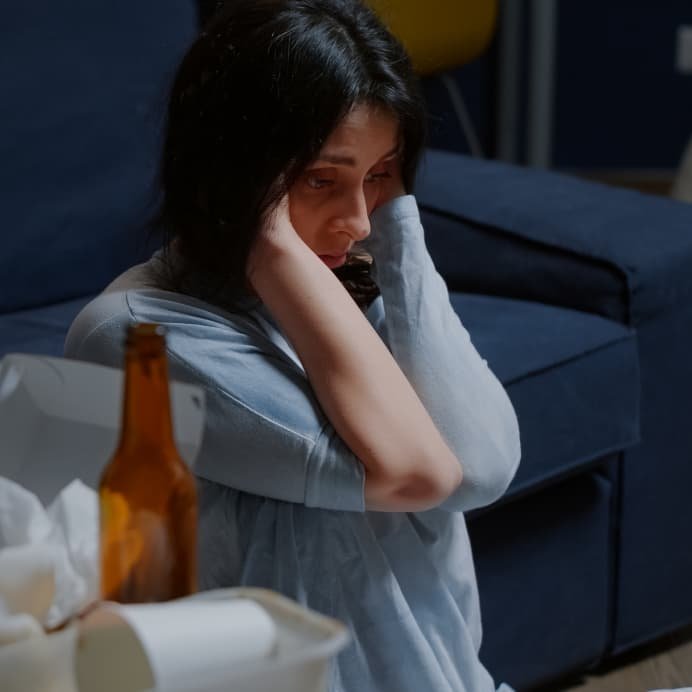
Why Choose 911 Detox recovery for Alcohol Rehabilitation?
Struggling with alcohol addiction can feel isolating and overwhelming, but you don’t have to go through it alone. At 911 Detox Center, we offer a transformative journey towards lasting sobriety that goes beyond just detox.

Detox
Our journey begins with a safe and comfortable, medically supervised detox. We understand the challenges of withdrawal, so we’ll be by your side, managing symptoms and addressing underlying triggers.
Residential
Immerse yourself in a supportive and structured program designed for healing and self-discovery. Through individual therapy sessions, you’ll delve deeper into your story, gaining insights and tools for lasting change.
Recovery Maintenance
Our commitment extends beyond treatment. We offer ongoing support groups, connecting you with others who understand your struggles and celebrate your successes.
Treatment Options for Bipolar Disorder
Effective treatment for bipolar disorder typically involves a combination of medication, therapy, and lifestyle changes. Common treatment options include:
- Medication: Mood stabilizers, antipsychotics, and antidepressants can help manage symptoms. Medications should be prescribed and monitored by a healthcare professional.
- Cognitive Behavioral Therapy (CBT): A form of psychotherapy that focuses on identifying and changing negative thought patterns and behaviors.
- Psychoeducation: Educating individuals and their families about bipolar disorder to promote understanding and adherence to treatment.
- Interpersonal and Social Rhythm Therapy (IPSRT): Helps individuals maintain regular routines and improve interpersonal relationships.
- Lifestyle Changes: Regular exercise, a balanced diet, and adequate sleep can help stabilize mood and improve overall well-being.
When to Seek Professional Help
If you or a loved one is experiencing symptoms of bipolar disorder, seeking professional help is essential. Early intervention can significantly improve the prognosis and quality of life. Our experienced team at Bipolar Disorder Treatment Center Los Angeles offers personalized care and effective treatment plans. Call us at (409) 9000 911 to start your journey toward stability and wellness.
Self-Help Strategies
In addition to professional treatment, self-help strategies can help manage bipolar disorder:
- Establish a Routine: A structured daily routine can provide stability and predictability, helping to manage mood swings.
- Monitor Mood Changes: Keeping a mood journal can help identify triggers and patterns in mood fluctuations.
- Stay Connected: Maintain social connections for emotional support. Regular interaction with friends and family can alleviate feelings of isolation.
- Practice Stress Management: Techniques such as meditation, deep breathing exercises, and yoga can help manage stress levels.
- Set Realistic Goals: Break tasks into manageable steps to avoid feeling overwhelmed. Achieving small goals can build confidence and reduce stress.
Lifestyle Changes to Manage Bipolar Disorder
Making certain lifestyle adjustments can significantly help in managing bipolar disorder:
- Healthy Eating Habits: Incorporate more fruits, vegetables, lean proteins, and whole grains into your diet. Avoid excessive caffeine and sugar intake.
- Regular Physical Activity: Engage in at least 30 minutes of exercise most days of the week. Activities like walking, running, or yoga can be particularly beneficial.
- Adequate Sleep: Ensure you get 7-9 hours of sleep per night. Establish a bedtime routine to promote better sleep quality.
- Limit Alcohol and Substance Use: Reduce or eliminate the use of alcohol and other substances. These can worsen symptoms and lead to dependency.
- Seek Social Support: Spend time with loved ones and engage in social activities. Building a strong support network can provide emotional reassurance.
Get Help Today
Bipolar disorder is manageable with the right approach. Recognize the signs, understand the complications, and explore treatment options. For professional help, contact our team at Bipolar Disorder Treatment Center Los Angeles. Call (409) 9000 911 to begin your path to recovery. Our dedicated team is here to support you every step of the way.
Our Programs
We focus on healing your mind, body, and spirit, not just stopping substances, for a holistic approach to lasting sobriety. Whether you're battling a new addiction, facing relapse, or carrying past trauma, we're your partner on the journey to a brighter future, free from addiction's grip․
Detox Program
Our safe and supportive detox program can help you clear your head and start fresh. We'll be right there with you, gently guiding your body's natural healing.
Residential Program
Our residential program repairs your body, mind, and spirit. Imagine a life free from addiction, feeling healthy and happy - we'll help you get there.






